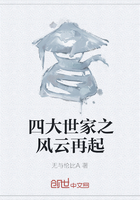SYNDICALISM arose in France as a revolt against political Socialism, and in order to understand it we must trace in brief outline the positions attained by Socialist parties in the various countries.
After a severe setback, caused by the Franco- Prussian war, Socialism gradually revived, and in all the countries of Western Europe Socialist parties have increased their numerical strength almost continuously during the last forty years; but, as is invariably the case with a growing sect, the intensity of faith has diminished as the number of believers has increased.
In Germany the Socialist party became the strongest faction of the Reichstag, and, in spite of differences of opinion among its members, it preserved its formal unity with that instinct for military discipline which characterizes the German nation.In the Reichstag election of 1912 it polled a third of the total number of votes cast, and returned 110 members out of a total of 397.After the death of Bebel, the Revisionists, who received their first impulse from Bernstein, overcame the more strict Marxians, and the party became in effect merely one of advanced Radicalism.It is too soon to guess what will be the effect of the split between Majority and Minority Socialists which has occurred during the war.There is in Germany hardly a trace of Syndicalism; its characteristic doctrine, the preference of industrial to political action, has found scarcely any support.
In England Marx has never had many followers.Socialism there has been inspired in the main by the Fabians (founded in 1883), who threw over the advocacy of revolution, the Marxian doctrine of value, and the class-war.What remained was State Socialism and a doctrine of``permeation.'' Civil servants were to be permeated with the realization that Socialism would enormously increase their power.Trade Unions were to be permeated with the belief that the day for purely industrial action was past, and that they must look to government (inspired secretly by sympathetic civil servants) to bring about, bit by bit, such parts of the Socialist program as were not likely to rouse much hostility in the rich.The Independent Labor Party (formed in 1893) was largely inspired at first by the ideas of the Fabians, though retaining to the present day, and especially since the outbreak of the war, much more of the original Socialist ardor.It aimed always at co-operation with the industrial organizations of wage-earners, and, chiefly through its efforts, the Labor Party[20] was formed in 1900 out of a combination of the Trade Unions and the political Socialists.To this party, since 1909, all the important Unions have belonged, but in spite of the fact that its strength is derived from Trade Unions, it has stood always for political rather than industrial action.Its Socialism has been of a theoretical and academic order, and in practice, until the outbreak of war, the Labor members in Parliament (of whom 30 were elected in 1906 and 42 in December, 1910) might be reckoned almost as a part of the Liberal Party.
[20] Of which the Independent Labor Party is only a section.
France, unlike England and Germany, was not content merely to repeat the old shibboleths with continually diminishing conviction.In France[21] a new movement, originally known as Revolutionary Syndicalism--and afterward simply as Syndicalism-- kept alive the vigor of the original impulse, and remained true to the spirit of the older Socialists, while departing from the letter.Syndicalism, unlike Socialism and Anarchism, began from an existing organization and developed the ideas appropriate to it, whereas Socialism and Anarchism began with the ideas and only afterward developed the organizations which were their vehicle.In order to understand Syndicalism, we have first to describe Trade Union organization in France, and its political environment.The ideas of Syndicalism will then appear as the natural outcome of the political and economic situation.Hardly any of these ideas are new; almost all are derived from the Bakunist section of the oldInternational.[21] The old International had considerable success in France before the Franco- Prussian War; indeed, in 1869, it is estimated to have had a French membership of a quarter of a million.What is practically the Syndicalist program was advocated by a French delegate to the Congress of the International at Bale in that same year.[22]
[20] And also in Italy.A good, short account of the Italian movement is given by A.Lanzillo, ``Le Mouvement Ouvrier en Italie,'' Bibliotheque du Mouvement Proletarien.See also Paul Louis, ``Le Syndicalisme Europeen,'' chap.vi.On the other hand Cole (``World of Labour,'' chap.vi) considers the strength of genuine Syndicalism in Italy to be small.
[21] This is often recognized by Syndicalists themselves.See, e.g., an article on ``The Old International'' in the Syndicalist of February, 1913, which, after giving an account of the struggle between Marx and Bakunin from the standpoint of a sympathizer with the latter, says: ``Bakounin's ideas are now more alive than ever.''
[22] See pp.42-43, and 160 of ``Syndicalism in France,'' Louis Levine, Ph.D.(Columbia University Studies in Political Science, vol.xlvi, No.3.) This is a very objective and reliable account of the origin and progress of French Syndicalism.An admirable short discussion of its ideas and its present position will be found in Cole's ``World of Labour'' (G.Bell & Sons), especially chapters iii, iv, and xi.















